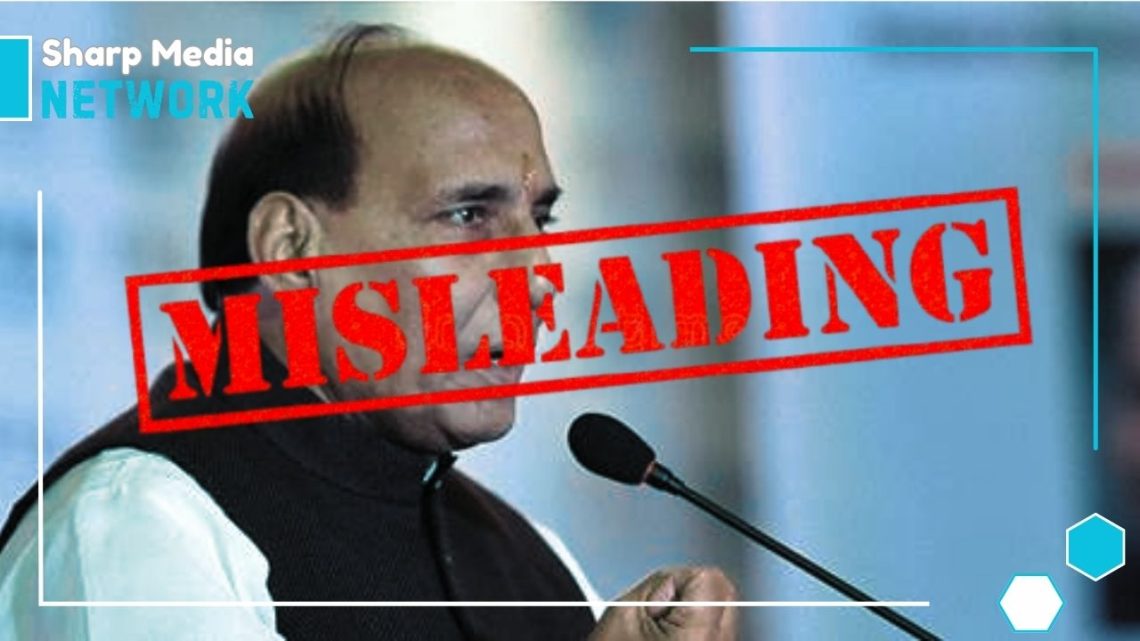
The Baseless Claims of Rajnath Singh and India’s Failed Political Tactics in Kashmir
January 15, 2025India’s recent baseless claims about Kashmir by Rajnath Singh not only distort historical facts but also reflect a deeper political agenda aimed at appeasing Hindu elites, while Pakistan continues to reject these false narratives.
In a recent statement, Indian Defense Minister Rajnath Singh made a baseless and delusional claim about the Kashmir issue calling AJK its potential part, further escalating tensions between India and Pakistan. The claim, which distorts historical facts and ignores the realities on the ground, is a part of India’s broader strategy to politically appease Hindu elites. Meanwhile, Pakistan continues to reject such false narratives, reaffirming its stance on the Kashmir struggle. This article explores the implications of Rajnath Singh’s claims and how they are part of a larger pattern of political and military failures by the ruling Bharatiya Janata Party (BJP).
Rajnath Singh’s recent claims about Kashmir are entirely baseless and are widely viewed as an attempt to distort the region’s complex history. Pakistan has unequivocally rejected these Indian assertions, stating that they are an attempt to manipulate historical facts and mislead the international community. The reality is that Kashmir remains a disputed region, with deep-rooted political, cultural, and religious implications. Singh’s statements are viewed by Pakistan as part of India’s continued efforts to divert attention from the real issues surrounding the Kashmir cause and its people’s ongoing struggle for self-determination.
The BJP, led by Prime Minister Narendra Modi, has long been accused of playing a political appeasement game, particularly targeting the Hindu elite demographic. By consistently making false claims about Kashmir and portraying itself as the sole defender of Indian nationalism, the BJP seeks to galvanize support from Hindu voters, often at the cost of regional stability. However, these political strategies have failed to resonate with the people of Kashmir, as demonstrated by the results of recent state assembly elections. These elections show a clear rejection of BJP’s claims, signaling that the people of Kashmir are not swayed by false promises and divisive rhetoric.
India’s tendency to play the victim card on the international stage is not a new phenomenon. Over the years, India has sought to malign Pakistan, blaming its neighbor for terrorism, and accusing Pakistan’s intelligence agency, the ISI, of being involved in various global terror activities. These false narratives are part of India’s strategy to deflect attention from its own internal issues and military failures. The humiliating defeat of Indian forces in the Galwan Valley, where over 20 Indian soldiers were killed by Chinese troops in 2020, has further tarnished India’s image. Additionally, India’s loss of over 2000 kilometers of territory in border disputes with China without a fight has raised serious questions about the competence of India’s armed forces.
India’s recent actions under the BJP regime, including Rajnath Singh’s baseless claims about Kashmir, are part of a long-standing strategy to manipulate historical narratives and appease domestic political factions. However, these tactics have backfired, with the people of Kashmir rejecting such falsehoods in the face of overwhelming evidence to the contrary. As India continues to face military and diplomatic setbacks, including its humiliation in Galwan Valley, it is likely that the BJP will keep resorting to these baseless claims to distract from its failures.

